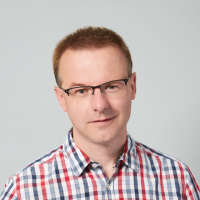
Nencki Institute of Experimental Biology
The Nencki Institute of Experimental Biology in Warsaw, part of the Polish Academy of Sciences, is one of Poland’s leading research institutions specializing in neurobiology, molecular biology, and biochemistry. The Institute’s research focuses on advancing scientific understanding in ways that can be directly translated into improved health protection and quality of life, including the development of novel therapies and diagnostic methods for cancer, diabetes, neurodegenerative and neurological disorders, and other diseases of modern civilisation.
The Nencki Institute team brings extensive experience in investigating signalling pathways involved in metabolic diseases and lipid absorption, both in vivo and in vitro. Within the Obelisk project, the team contributes primarily to Work Packages 3 and 4, which focus on understanding the molecular and genetic bases of childhood obesity and identifying potential new drug targets.
People
Grzegorz Sumara leads the Dioscuri Centre for Metabolic Diseases at the Nencki Institute of Experimental Biology since 2020. He earned a PhD from the University of Zurich and ETH Zurich. Later, he was a postdoctoral HFSP fellow at Columbia University in New York and briefly at IGBMC in Strasbourg. Before joining Nencki Institute, Grzegorz led a research group at the Rudolf Virchow Centre in Würzburg. Awarded the Emmy Noether grant and an ERC Starting Grant, he explored hormonally-induced signaling cascades in adipocytes and hepatocytes, establishing Protein kinase D (PKD) as a key regulator of energy metabolism. His current work focuses on the interplay of signaling molecules during metabolic diseases like obesity and type 2 diabetes.

Dominika Malińska, PhD
Dominika obtained her PhD in Biology in 2010, at the Nencki Institute of Experimental Biology (Warsaw, Poland). Both her PhD and further post-doctoral research focused on mitochondrial physiology, the interplay between mitochondria and other components of cellular bioenergetics, such as glycogen metabolism, as well as the involvement of these organelles in cellular adaptation to stress. In 2024 she joined Dioscuri Centre for Metabolic Diseases at the Nencki Institute, where she continues her research on cellular bioenergetics in the context of obesity development.
